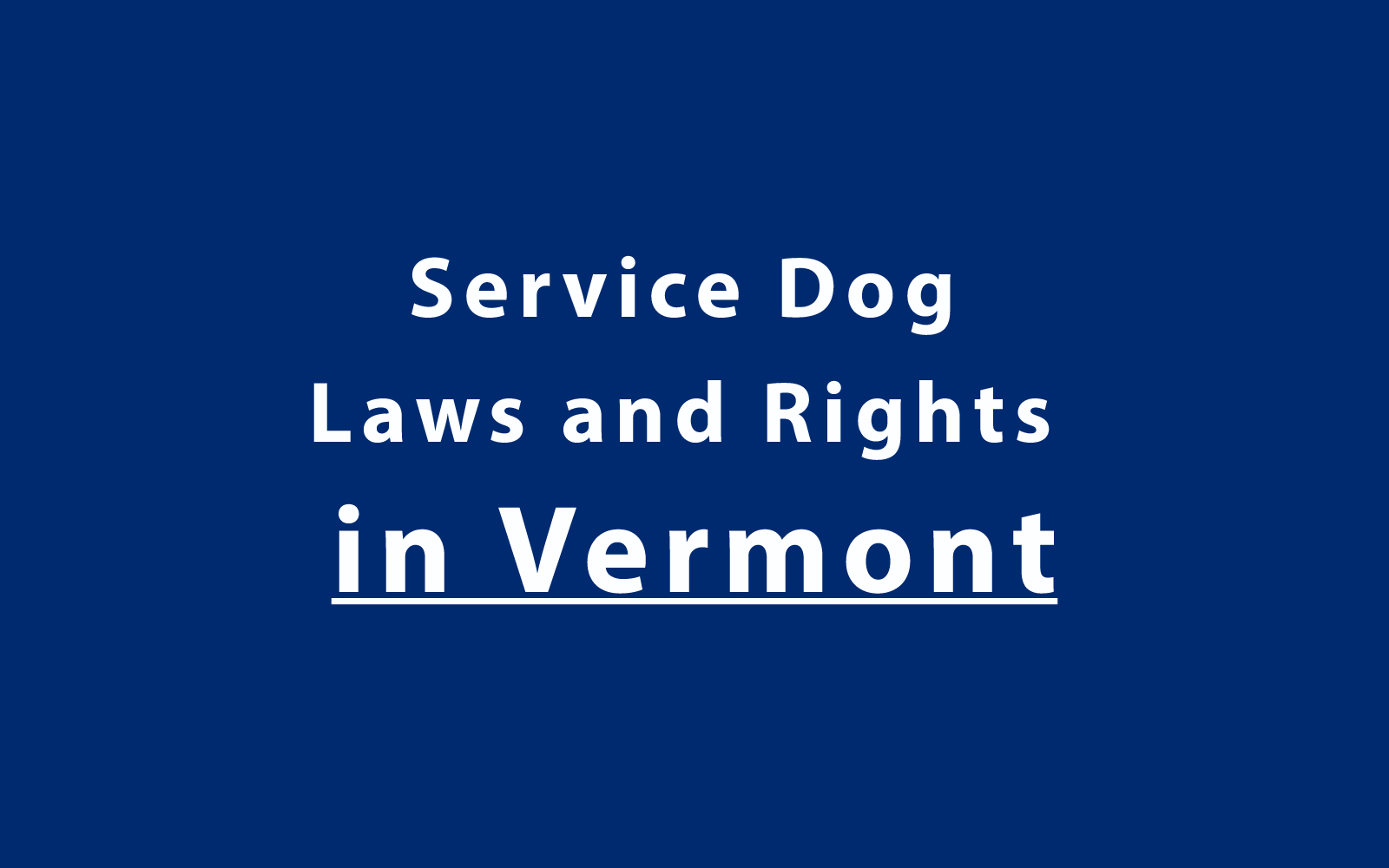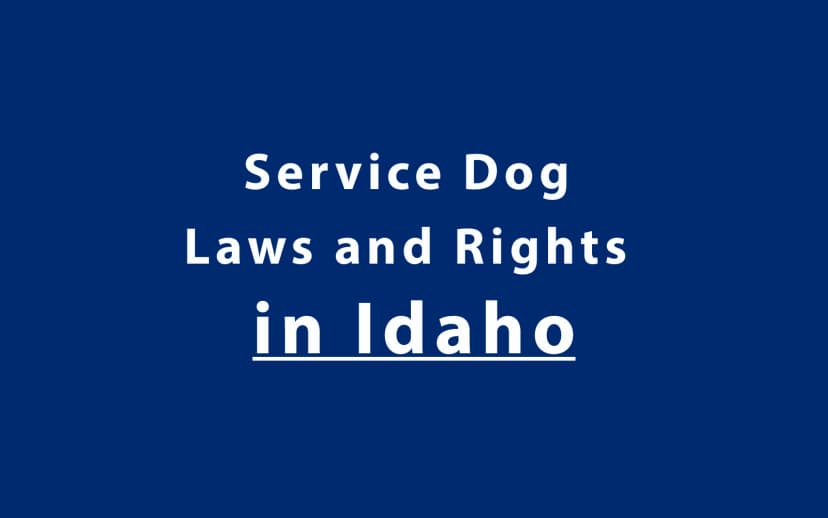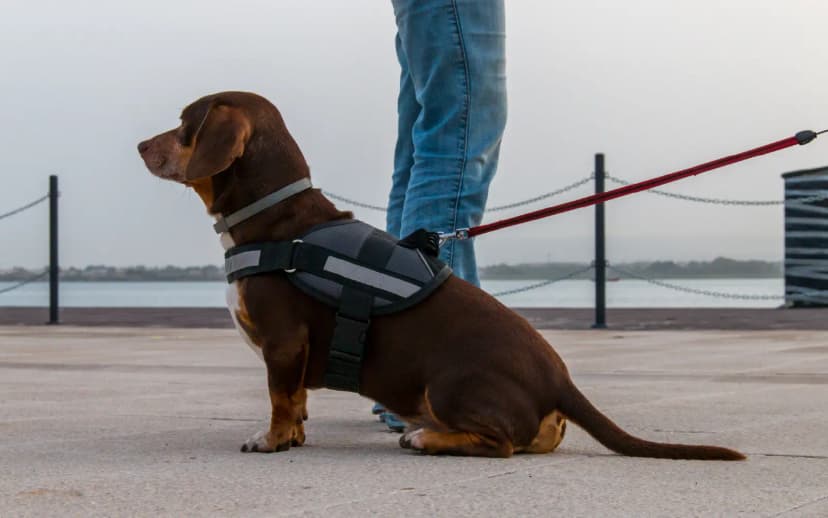Service Dog Laws and Rights in Vermont

Service dogs are essential companions for many individuals living with physical, sensory, psychiatric, or neurological disabilities. In Vermont, service dog handlers are protected by a combination of federal and state laws that ensure their access to housing, public spaces, employment, and transportation. This 2025 guide provides a detailed look at the laws and rights that protect service dog users in the Green Mountain State.
Definition of a Service Dog in Vermont
According to the Americans with Disabilities Act (ADA) and Vermont state law, a service dog is defined as a dog that is individually trained to perform specific tasks or work for a person with a disability.
Examples of recognized service dog tasks include:
• Guiding a person with vision loss
• Alerting to oncoming seizures or diabetic episodes
• Providing mobility assistance
• Interrupting self-harming behaviors or panic attacks
• Reminding someone to take medication
Not considered service animals:
• Emotional Support Animals (ESAs)
• Therapy dogs (used in group or clinical environments)
While ESAs may offer valuable emotional comfort, they are not trained to perform specific tasks and are therefore not granted public access rights under the ADA.
Vermont also recognizes dogs in training to become service dogs as having the same rights as fully trained service dogs, provided they are accompanied by a qualified trainer.
Public Access Rights in Vermont
Under the ADA and the Vermont Fair Housing and Public Accommodations Act, service dog handlers are legally permitted to access nearly all public places.
This includes:
• Restaurants and cafés
• Retail stores and shopping malls
• Parks and recreational areas
• Libraries and museums
• Public transportation
• Hotels and government buildings
Businesses and service providers may ask only two questions if it is not obvious that a dog is a service animal:
1. Is the dog a service animal required because of a disability?
2. What work or task has the dog been trained to perform?
They may not:
• Demand documentation or ID
• Ask for a demonstration
• Inquire about the person’s specific disability
Handlers must maintain control of their dog, which should be leashed or harnessed unless it interferes with the dog’s task. The dog must be housebroken and non-aggressive. Businesses may ask the dog to leave if it is out of control or poses a health/safety threat.
Housing Rights in Vermont
Under the Fair Housing Act (FHA) and Vermont housing laws, individuals with service dogs and ESAs are entitled to live in housing with their animal, regardless of pet policies.
Key protections include:
• No-pet housing policies must make exceptions for service animals and ESAs
• Landlords cannot charge pet fees or deposits for service dogs
• No breed, size, or weight restrictions may be imposed
Reasonable documentation:
• Landlords may request a letter from a licensed healthcare provider only if the disability or need for the animal is not obvious
• They may not ask for medical records or training certifications
Complaints about housing discrimination can be filed with the U.S. Department of Housing and Urban Development (HUD) or the Vermont Human Rights Commission.
Employment Rights in Vermont
Under ADA Title I, employees with service dogs have the right to request a reasonable accommodation in the workplace.
How to request:
• Submit a written accommodation request
• If the disability is not visible, employers may request documentation confirming the need
• Employers must engage in an interactive process to explore suitable accommodations
Employers may deny requests only if:
• The accommodation causes undue hardship
• The dog presents a direct safety risk
Discrimination complaints may be directed to the Equal Employment Opportunity Commission (EEOC) or the Vermont Human Rights Commission.
Travel and Transportation Rights
Air Travel:
• The Air Carrier Access Act (ACAA) allows service dogs to accompany their handlers in the airplane cabin without charge
• Airlines may require completion of the U.S. DOT Service Animal Air Transportation Form
• Dogs must remain seated in the handler’s foot space and behave appropriately
Ground Transportation:
• Under the ADA, service dogs are allowed on all public and private transportation services, including:
• Buses
• Trains
• Taxis and rideshare vehicles (Uber/Lyft)
• Airport shuttles
Handlers who are denied transport access may report the violation to the U.S. Department of Transportation or local transit authorities.
Service Dogs in Schools and Educational Settings
K–12 Public Schools
Vermont schools must comply with the ADA, Individuals with Disabilities Education Act (IDEA), and Section 504, which require that students with disabilities be allowed to bring their trained service dogs to school.
Schools:
• May not require proof of certification
• May ask who is responsible for the animal’s care during the day
• Must not charge any fees for allowing a service dog
Higher Education
Colleges and universities must allow service dogs in dorms, classrooms, and common areas. Students should notify the campus disability services office in advance to coordinate support.
Training and Registration in Vermont
There is no legal requirement to register or certify a service dog in Vermont or under federal law.
Best practices include:
• Consistent obedience training
• Public access readiness (non-reactive, calm demeanor)
• Task-specific training aligned with the handler’s disability
Voluntary tools:
• Public Access Test (PAT)
• Service dog ID cards or vests (optional)
• Virtual training programs like those at AssistanceDogPartners.org
These can help reduce conflicts in public and streamline interactions with landlords and service providers.
Fraud and Misrepresentation
While Vermont does not have a specific criminal statute penalizing service dog fraud, misrepresenting a pet as a service dog can still lead to legal consequences and fines under general misrepresentation laws.
Impacts include:
• Loss of public trust in legitimate service dogs
• Disruption to genuine handlers’ access rights
Businesses may ask dogs to leave if they are not under control or are not task-trained. Complaints of fraud can be reported to local law enforcement or the Vermont Human Rights Commission.
State and Local Resources
• Vermont Human Rights Commission: Handles housing, employment, and public access complaints
• Vermont Legal Aid - Disability Law Project: Provides legal support for individuals with disabilities
• Agency of Education: Offers guidance on service animals in schools
• ADA Coordinators: Found in many cities like Burlington, Montpelier, and Rutland
• AssistanceDogPartners.org: Online training, registration, and support resources
Frequently Asked Questions (FAQs)
1. Is registration required for a service dog in Vermont?
No. Registration is not legally required.
2. Can psychiatric service dogs go into public places?
Yes. As long as they are task-trained, they have full ADA protection.
3. Can landlords refuse a service dog?
No. They must accommodate unless the dog poses a direct threat.
4. What should I do if denied access?
Report the violation to the Vermont Human Rights Commission or the DOJ.
5. Can I train my own service dog?
Yes. Owner-training is legal and acceptable in Vermont.
Conclusion
Vermont upholds strong protections for individuals with service dogs, aligning closely with federal ADA standards. Whether at school, work, home, or in public, handlers and their dogs are entitled to access and respect.
While registration and certification aren’t mandatory, it’s highly recommended to maintain high training standards, ensure good public behavior, and consider voluntary tools like PAT evaluations and ID kits. These resources, available at AssistanceDogPartners.org, help promote smoother day-to-day experiences and reinforce the legitimacy of service dog teams.
Empower yourself with the right knowledge, and navigate Vermont confidently with your service dog at your side.



